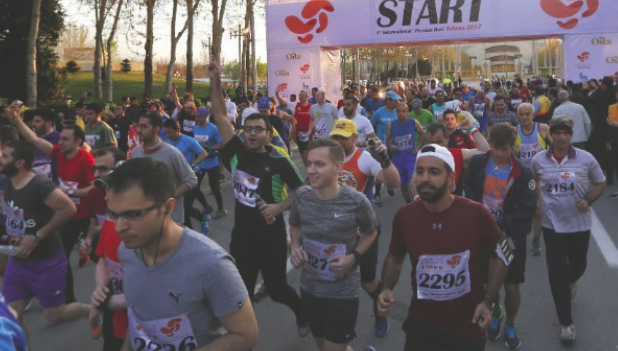Women And U.S. Citizens Barred From Run
Earlier this month, Iran hosted its first International Marathon, but it was swiftly met with conflict when many participants were barred from racing. Shortly after the race was announced, reports indicated that authorities denied U.S. citizens with visas the chance to race and prohibited women from taking part in the full race.
The 26-mile marathon was organized by Dutchman Sebastian Straten, who said he saw the event as an opportunity for Iran to build bridges with the international community and to break down stereotypes. After months of tedious preparation and struggling with Iran’s challenging political climate, however, Straten’s dream was challenged.
Straten himself, who also organized the event, was prevented from entering Iran for “unclear reasons,” despite having been granted a visa. Last year, his travel company, Iran Silk Road, which organizes tours within Iran, held a similar marathon in the Iranian city of Persepolis, in which women were blocked from participating due to the country’s religious customs.
“I sincerely regret the promises I made to female runners that they would be able to run,” said Straten. “[As well as] to the U.S. runners who were very motivated, that were not able to secure their visas.”
On the ‘I Run Iran’ event website this year, there were 442 runners registered for the marathon from more than 45 countries, including Australia, Canada, Saudi Arabia and Britain. It listed 28 Americans among these, though according to Straten, many of these U.S. citizens were denied visas and many women could not register.
But once again, female participation proved a controversial point in the nation of Iran. Initially, female runners believed that they would be able to participate in the 26-mile race. The only specifications listed for female runners on the event’s website were details of appropriate wear, which included a headscarf or sports bandanna, long-sleeved shirts and pants.
But in the weeks prior to the event, their status became a point of confusion, with organizers unable to confirm if they would be able to run at all. Hadi Ghaemi, the executive director of the Center for Human Rights in Iran (CHRI) said, “There was no justification for separating women and men.”
“By segregating males and females at the last minute and forcing women to run a shortened route away on the outskirts of the city, officials have not only failed in delivering what they promised, but have also subjected women, local and foreign, to discrimination,” said Ghaemi.
Because of this last-minute change, some women staged their own secret marathon. These women ran a major part of the race in secret and then ran the 10K that they could run officially.
“We came up with this really peaceful solution and we just figured it out late, the day before the event,” said Karin Brogtrop-Beekman, a participant from the Netherlands.
And while she admits there is still a long way to go to bridge the gap between nationalities and genders, she views this year’s marathon as a great first step.




